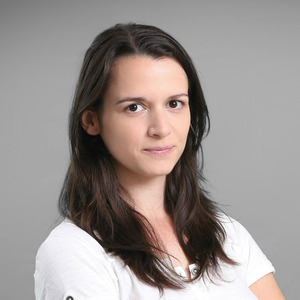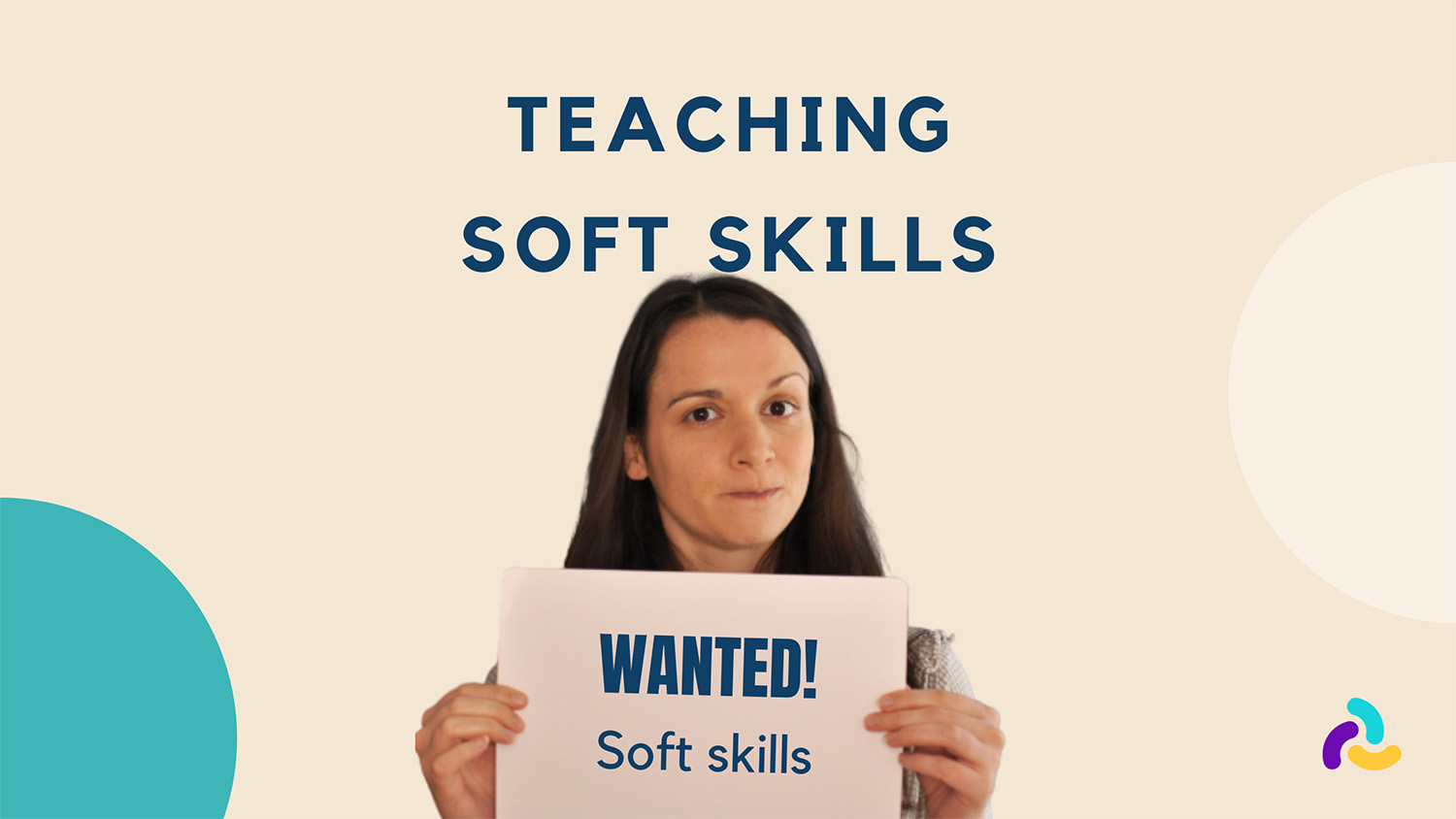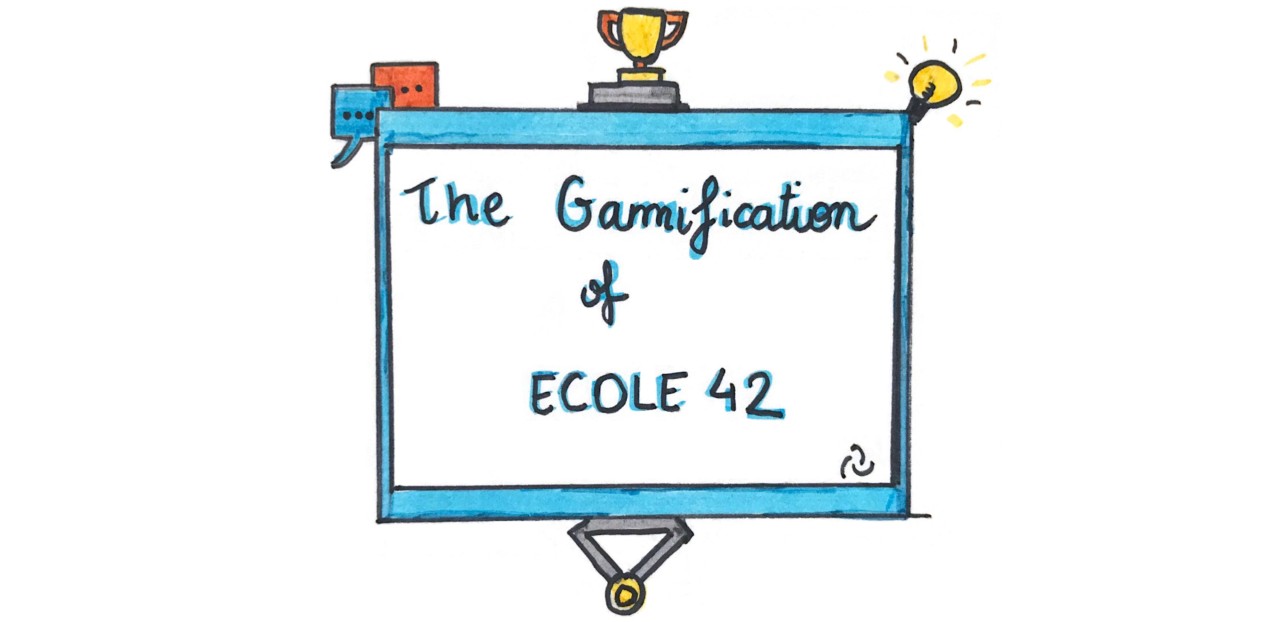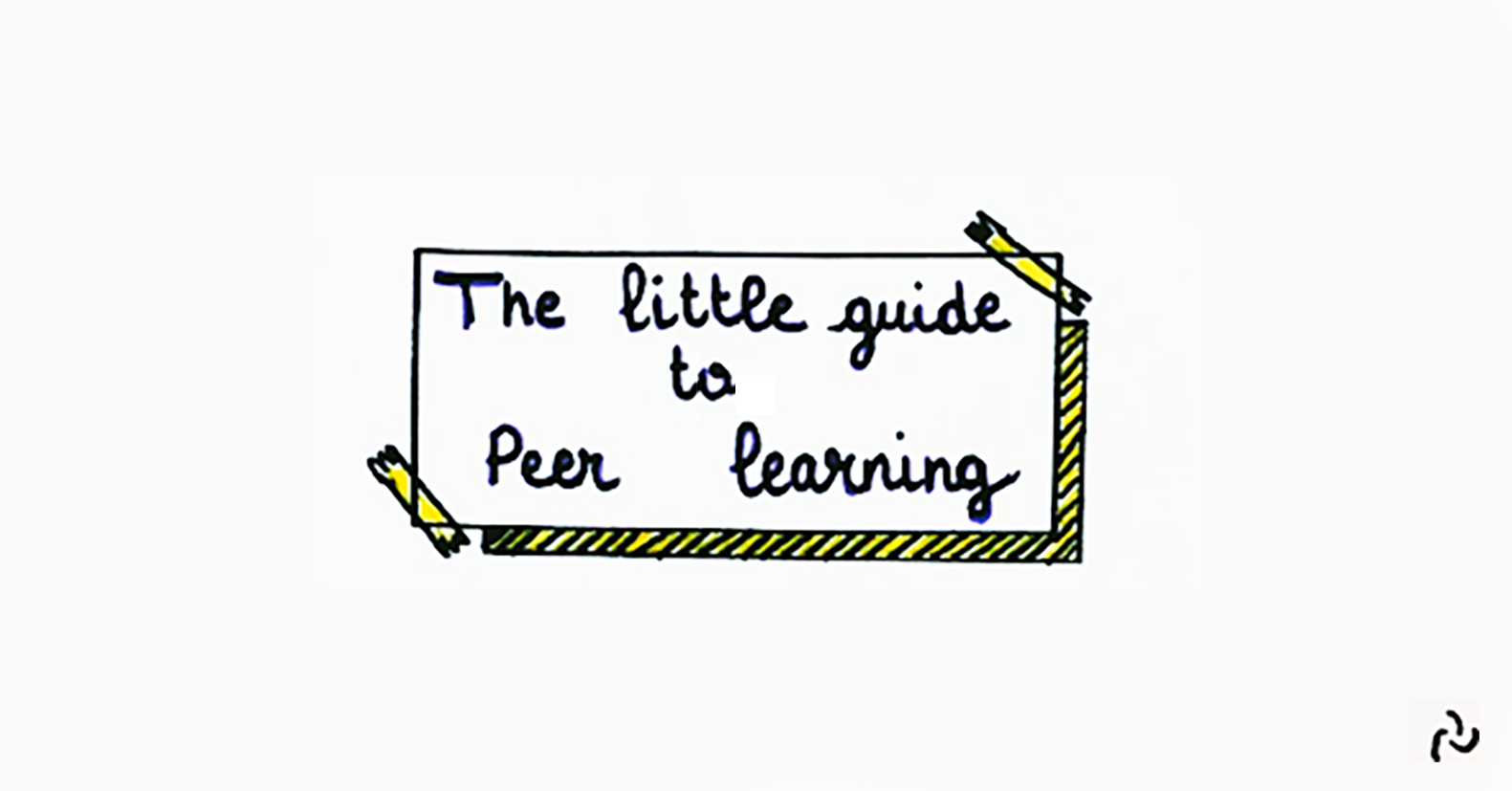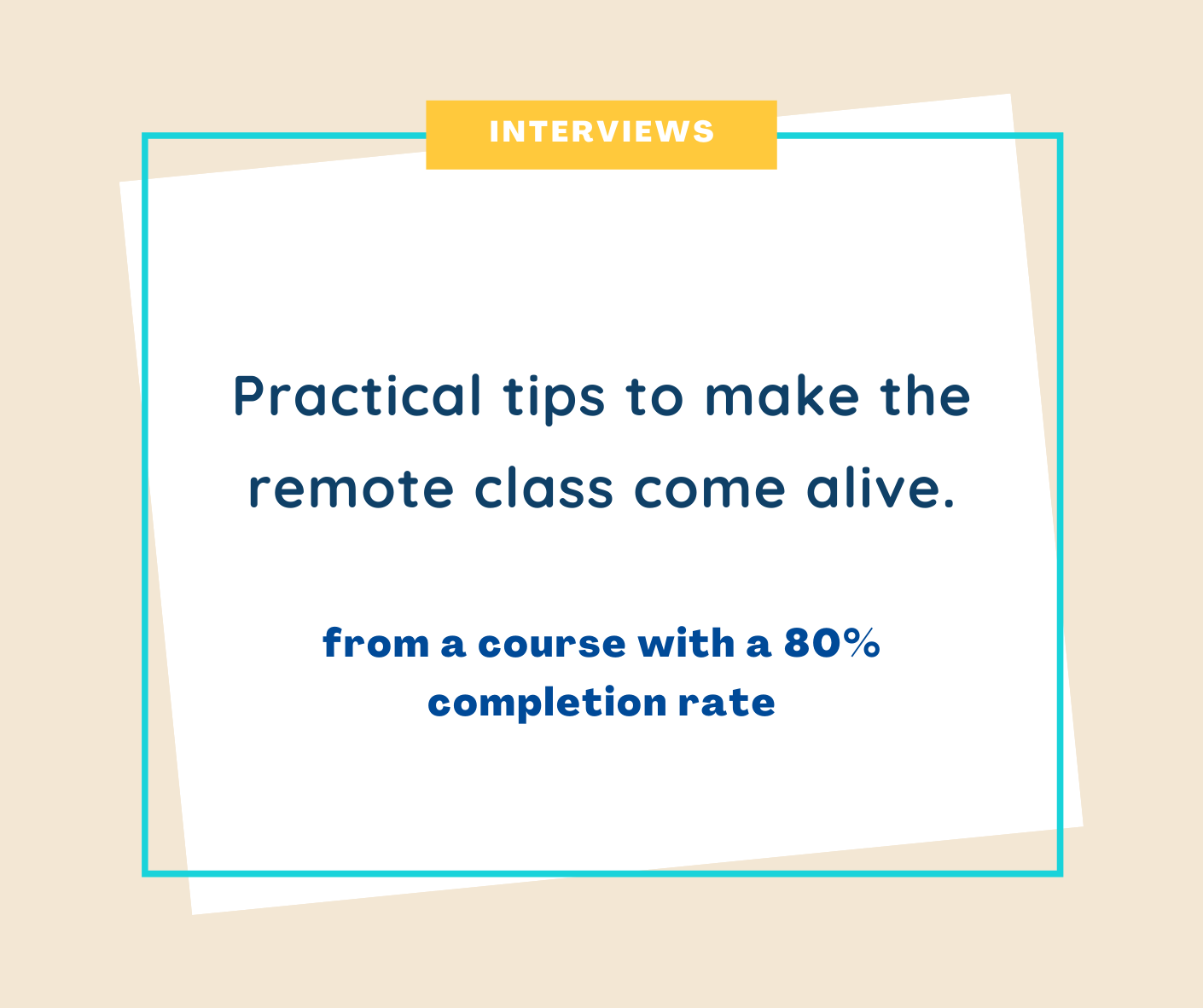Most educators are convinced that the future lies in more collaborative classrooms, and are actively experimenting with it. There are also schools who have made the choice to remove teachers all-together to make learning a pure peer experience. I imagine educators looking at those with a mix of curiosity and disbelief - What actually happens in those schools? Is it efficient? What kind of learning actually happens, if at all?
I have been twice a student within a pure peer learning model, and I have also worked with peer learning as an educator over different programs. While I believe peer learning is absolutely necessary to modern education, I think we need a reality check about what it can and can’t do.
First, what’s peer learning?
Peer learning is learning that happens between peers only. It’s a subset of collaborative learning that excludes faculty members (or any kind of authoritative, skilled figure) to concentrate on activities between people who have the same level of skills and knowledge.
The idea is that the community itself can construct and exchange the knowledge it needs. Expertise is inherently present in the group, you only need to put brains together.
There are two big promises with peer learning:
Education becomes scalable, since you remove the limiting factor (the teacher) Students naturally develop much needed “21st century skills” By removing any external source of control, peer learning also supposedly gives learners their power back, compared to teacher-led education.
That’s personally what I love the most with the concept of peer learning - the idea that people don’t need to surrender their power to someone else. They have what it takes within them. They can nurture their own growth.
Powerful idea!
Because it’s aligned with my personal beliefs, I’d love it to be a universal truth that works for all learners and all learning objectives.
Unfortunately, experience both as a student and an educator tells me otherwise.
Where peer learning shines
I have experienced peer learning as a student over two different programs:
School 42, where I learnt software engineering 6 years ago. The altMBA, an alternative to the traditional MBA, that I did a few months ago. In both cases, there’s something to be said about the kind of communities peer learning builds.
Setting you up as a co-creator of community knowledge pushes you to take responsibility for your and others’ learning. You feel committed and engaged toward the community in a way that traditional education fails to do. It’s a powerful way to build a community of self-directed learners.
This self-reliance component also forces you to uncover your own strengths. The single common point shared by the 42 alumni I know is a confidence that they can achieve anything they set their mind to. If that’s not empowerment, what is!
It also definitely develops key interpersonal skills. I feel this is particularly true for A+ students who are focused on the craft and are not interested in developing “people skills”. By making the community aspect such a key component, you force them to stretch themselves and to uncover precious inner resources.
To be honest, I didn’t experience that aspect much as a 42 student, because interdependence is not embedded in the design of daily activities. You can work on your own the majority of your time - and so I did.
It was different with the altMBA: you just can’t avoid the learning group component, since all projects start with a peer discussion. And I enjoyed it! I learnt to value individual contributions and ideas. I got confronted with different worldviews. It showed me how rich exchanges with people from different backgrounds could really be.
Since the altMBA ended I kept that dynamic with a few alumni, and I’m loving it. There’s something really powerful about talking things through with a group that cares about each other’s growth.
Where peer learning falls short
Reading what I just wrote, you could believe I am in favour of pure peer learning environments!
I am not.
There are major pitfalls, that I have experienced as a student and that I have observed as an educator.
- Structured peer feedback is often shallow
Simply put: people who have the same level of expertise as you on a topic can’t see your blind spots. They miss the subtleties in the requirements. They don’t have the big picture to steer you toward a more efficient way to work.
For peer correcting to work structurally, peer assessment rubrics must be sufficiently clear to make the assessment as objective as possible. It’s the same with self-assessment, by the way. You end up with assessment scales that revolve around easily observable and testable elements, and nothing that addresses the learning process itself. It usually doesn’t address actual competencies, depth of knowledge or growth.
I think I have had less than 5 useful reviews over my whole studies at 42. Two of which were much needed/appreciated kicks in the teeth… by a staff member, not a peer (Mathieu still brags about giving me only 0s).
- Free-form peer feedback is also unhelpful
The peer feedback process of the AltMBA was also lacking. And this was within a community of people who I believe were 100% committed to the growth of their fellows. Still, if you don’t have significant domain knowledge in one area, the feedback you give is bound to stay on the surface of things. You can give your opinion or react to superficial elements, but you can’t pinpoint the weak points in a reasoning. Your partial understanding makes it very difficult to take all system components into account to produce a strong analysis.
I found both giving and receiving feedback in those conditions really frustrating.
- Peers are not practitioners
42 is a vocational school to become a software engineer.
Yet you don’t learn anything of the practices of professionals, because you never interact with one. The only culture that is transmitted is student culture, not practitioner culture.
For me it’s a major issue, as I think the role of professional training is to turn you into a hireable professional. And if you don’t confront yourself to professionals, you just become a skilled amateur. Note that it’s not only a problem with 42; many traditional university programs have the same issue of not confronting you to actual practitioners.
- Peers are not experienced at teaching
The more experience you have with teaching, the more apt you become at understanding others’ mental models.
Understanding your students’ mental models is the first step to coming up with efficient strategies to nudge them toward a better understanding.
So, teaching doesn’t only require understanding a topic well, it implies being able to look at the topic from different angles and through different prisms to find the approach that will work with a given student.
This is an acquired skill and it is incredibly difficult to do as a beginner!
Peer learning that successfully replaces the teacher often isn’t peer learning at all
The very essence of peer learning is the collaboration between people of the same level of experience and skills. It’s not peer learning if you count on more experienced students to tutor the struggling ones!
Yet many peer learning environments simply work on that assumption. They effectively count on emerging, spontaneous TAs to take over. Knowledge is not constructed by the magic of peer learning, then. Knowledge is built because some students take on the responsibility to make knowledge “digestible” for the ones who struggle.
There’s nothing wrong with that if students explicitly sign up for this. Particularly since, as the saying goes, by teaching you learn twice.
Yet, maybe your best students are not interested in mastering everything to perfection and would rather spend time exploring new fields. They might want to delve deeper into their own interests and stretch their limits, rather than develop their tutoring skills.
I think that, if we want to create a tutoring dynamic in the classroom, we need to be intentional about it. To make things fair and to make sure everybody is growing.
If the accepted social contract is that weaker students will stretch their domain knowledge while stronger students will work on their tutoring skills, we need to have a framework to help tutoring students effectively improve on their tutoring. We need to provide feedback on their practice and make sure they grow through the process. They should not feel like they are plateau-ing to support struggling students.
How I use peer learning as an educator
My goal as an educator is simple: it’s to make students grow. So I try to use whatever tools I have available, putting aside partisan bias.
Currently, I believe that peer learning works best to:
- Debrief experiences
- Confront yourself to different worldviews
- Generate ideas and learn to look at something from different perspectives
- Identify gaps in your knowledge (as you explain something to somebody else)
- Create an interdependent, collaborative community
And that it’s unhelpful to:
- Provide meaningful feedback
- Turn students into professionals
- Improve the understanding of struggling learners
That being said, I am still experimenting with peer learning.
I am convinced it’s an essential element to learn how to navigate the world. But I also want my learners to have the best understanding possible of their field, and to really stretch themselves. I try to find the sweet spot between peer learning and teaching - I want to have my cake and eat it too!
What has been your own experience with peer learning? Have you found ways to make up for the negatives outlined here? I would love to hear from people who have had opposite experiences and outcomes!
